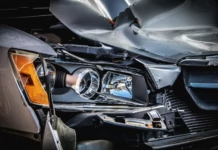Scotland is streets ahead of the rest of the UK with new data showing where each UK region ranks for public charging devices.
Electric vehicle experts at LeaseElectricCar.co.uk have revealed which areas across the country have the most charge points available for public use.
Recent statistics show that the government is not expected to reach its goal of public rapid charge points across the country with growing pressure on local authorities to help meet targets.
Experts have now revealed the regions where it is easiest to find a public rapid charge point to use.
| Region | Number of public rapid charging devices per
100,000 of UK population |
| Scotland | 19.2 |
| West Midlands | 14.7 |
| South East | 13.5 |
| North East | 13.3 |
| South West | 13.2 |
| East Midlands | 12.8 |
| Yorkshire and the Humber | 12.7 |
| Wales | 12.2 |
| East of England | 11.6 |
| London | 10.7 |
| North West | 9.9 |
| Northern Ireland | 3 |
Scotland has the highest number of public rapid charging devices per 100,000 people – standing at 19.2.
The easiest region in England to publicly charge up EVs is the West Midlands, which has 14.7 rapid devices per 100,000 of the UK population.
England’s South East, North East, and South West both have over 13 public devices per 100,000 people – with 13.5, 13.3 and 13.2, respectively.
The East Midlands ranks sixth best for the number of devices per 100,000 – with 12.8 rapid charge points available.
Yorkshire & the Humber and Wales also have over 12 charge points per 100,000 of the UK population – at 12.7 and 12.2.
East of England and the North West have few charge points per population numbers – with 11.6 and 9.9, respectively.
Because of high population numbers, London ranks tenth best for regions to use a public rapid chargepoint – with 10.7 per 100,000 people.
Northern Ireland is significantly the worst UK region for publicly available rapid charging devices per 100,000 of the UK population – with just three available.
Tim Alcock from LeaseElectricCar.co.uk said that the government needs to be doing more to support local councils to help them install more public charge points.
He said: “It’s shocking to see the low numbers of rapid charging devices available to the public in each region given how soon the deadline is for the ban on selling new petrol and diesel cars in just seven years time.
“In March 2022 the government announced they would invest £1.6 billion into expanding the UK charging network in order to deliver 300,000 public chargers of all speeds by 2030; as well as having six or more rapid or ultra-rapid chargers at every motorway service area in England by the end of 2023.
“However, it has recently been revealed that the government is not expected to reach this target, as less than a quarter of service stations along motorways currently have the target number.
“And local authorities are also under growing pressure to help the government reach its target by providing public charge points for their residents.
“In February the government announced the expansion of the Local Electric Vehicle Infrastructure (LEVI) fund with £56 million going towards increasing the number of EV charge points across the UK.
“This money supports local authorities with a resource to invest in an EV officer, to help move plans forward and help reach key charge points goals.
“This LEVI funding is currently being trialled in 19 regions, yet more needs to be done to support other local authorities across other areas of the country.
“It’s great to see more money being put into funding for local authorities to install more rapid charge points, but there is still more to be done to support EV drivers and the electric vehicle industry alike.”
To find out more about which local authorities have the most public rapid charge points, visit https://leaseelectriccar.co.uk/.

| [donate]
| Help keep news FREE for our readersSupporting your local community newspaper/online news outlet is crucial now more than ever. If you believe in independent journalism,then consider making a valuable contribution by making a one-time or monthly donation. We operate in rural areas where providing unbiased news can be challenging. |



















